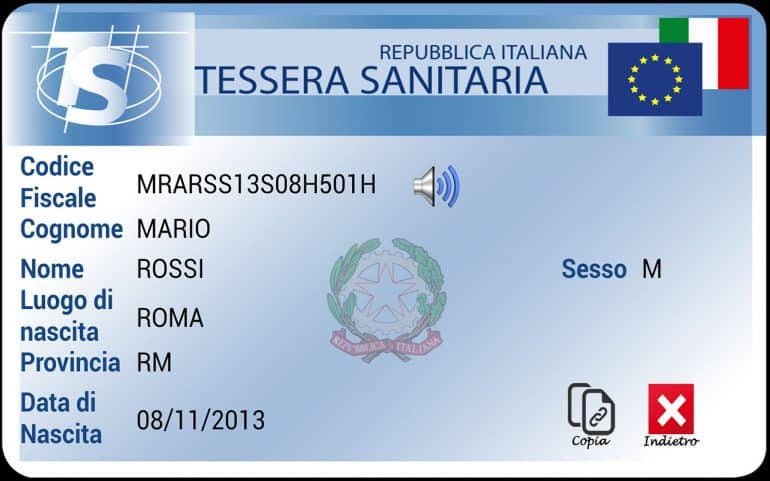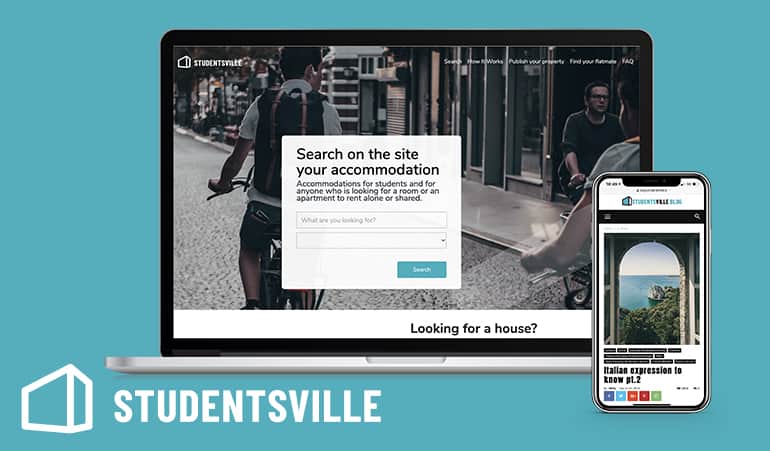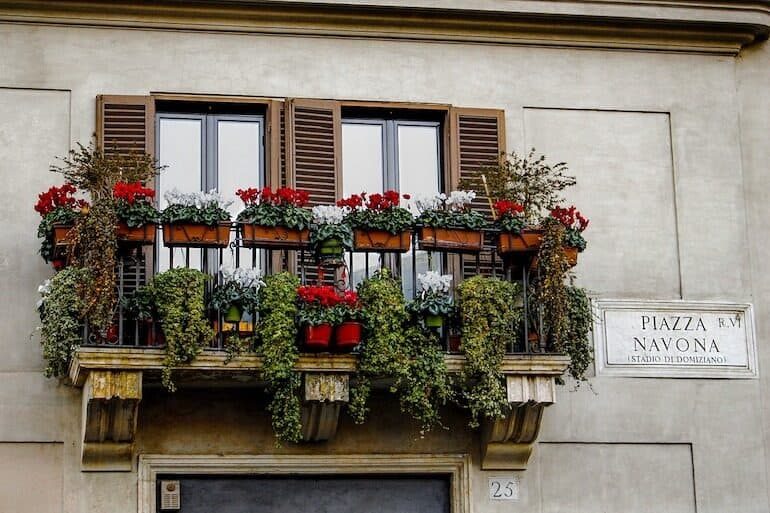Exploring the Legal and Cultural Elements of Housing Agreements
So you’ve finally found an apartment in Rome, and now it’s time to sign the contract. As a foreign student securing a new home, you might be learning how to rent an apartment for the first time while also facing cultural challenges. This comprehensive guide provides information on standard rental processes in Italy and how to navigate them as a foreigner.
Types of Housing Contracts in Italy

After finding your new home in Rome, communicating with your landlord and signing a contract are important logistical steps to settling into your new home. There are generally two types of contracts Italian landlords (il/la locatore) may register with the Agenzia delle Entrate, the Ministry of Economy and Finance. If you’re studying abroad or are moving to Rome for at least one academic year, you will probably sign a type of a ‘mutually agreed contract’ (contratto concertato). These residential contracts are more flexible and allow tenants to stay for periods of one to eighteen months and are non-renewable (uso transitorio) or for a period of three years with the option to renew for another two (uso abitativo or shown as 3+2). The second type of contract, which students don’t typically sign, are called ‘free market contracts’ (contratti di libero mercato) and typically last four years with an automatic renewal of another four (also shown as 4+4).
Signing a Housing Contract in Italy: Required Documents & General Outline

Your landlord will likely ask for your codice fiscale (tax code) and passport number in order to register the contract with the agenzia. The codice fiscale functions similarly to an American social security number, and is also obtained through the Agenzia delle Entrate. If you need to apply for your codice fiscale and/or any other legal documents, check out our guide here. Your name, date of birth, place of birth, and possibly your permesso di soggiorno number will also be listed in the contract to thoroughly identify you as the tenant. In general, contracts will also include: the landlord’s full name and address, your monthly rent, the exact duration of the lease, the deposit amount and terms for getting it back, and your rights as a tenant and the landlord’s rights in terminating the contract early. Note that the majority of rentals are leased by private individuals, and with the perception that Americans have larger budgets to work with, it’s common for Italian landlords to try to jack up the rent. If you’re not working with a housing agency, feel free to communicate with the landlord about price, and bring a local friend or colleague who speaks Italian along with you!
Translating a Housing Contract for Non-Italian Speakers

If you don’t understand Italian before you’re required to sign the official contract, the commitment can be very stressful and nerve wracking. Again, take your contract to any Italian friends or colleagues who could provide a general translation, or if your landlord speaks English, kindly ask them to provide an English translation for your records (but also verify the translation from the original). Since it is a housing contract and contains legal jargon, understanding every term can be tricky even for Italian residents who know the language. For direct translations of the actual text, Scholaro Translation is a useful service that translates immigration documents, lease agreements, recommendation letters, medical records, and many more documents into 60+ languages.
Special Clauses to Look Out For

Before signing the contract, it’s a good idea to ask the owner for proof of ownership (visura catastale or property deed) to ensure he/she is the bona fide owner of the apartment. When the ownership is confirmed, make sure there is an ISTAT clause in the contract. ISTAT is the Italian statistics authority that calculates annual rent increases, and the landlord may increase the rent each year according to this percentage.
For free market contracts that last for four years, an early termination clause should also be included in the contract. This statement allows the tenant to terminate the contract before it ends, providing they supply a six-month notice before the termination along with a registered letter. If you don’t provide a six-month notice, you are legally bound to pay double rent for a duration of six months. Landlords can never terminate the contract early, except in cases where tenants break the rules of the building complex, deliberately damage the property, or repeatedly refuse to pay rent.
Utilities

If utilities aren’t included in the monthly rent, tenants pay additional fees for gas, electric, internet, and cable. Some utilities are paid every month, while others every two months. Your landlord should provide the utility bill (or at least a picture of it) so you can verify the amount and split the total price among your roommates if necessary.
Tenants are also financially responsible for more than their monthly rent and utilities, and are subject to service charges relating to the building’s maintenance. These charges are known as ‘condominium fees,’ and cover central heating, the stair and hallway cleaning, courtyard and garden maintenance, and the garbage service. Unlike the utilities, which will vary in price depending on your usage, condominium fees should be a standard charge that’s calculated by the apartment’s size and value.
Proper Registration

After signing the contract, ensure your landlord officially registers it at the agenzia. The landlord has 30 days to do so, and will be able to provide a bollettino (bulletin or bill) with the registration fee (which is typically split between the landlord and tenant) if he has. Because property owners are subjected to many maintenance taxes, it’s possible that they never officially register the contract in order to avoid them—you may ‘sign’ a document that never leaves your landlord’s apartment. If the contract is never registered, it is null and void and the tenant has the right to leave the property at any time. Having a registered contract protects you and the landlord in the agreement, and so it’s important that they legally register and maintain their property. If the landlord insists you pay rent in cash, or never addresses the existence of a contract, it’s likely that the owner isn’t paying the proper taxes on the apartment.
Paying Rent in Italy

When you finally are moved into your apartment, and the proper paper work is filed, you can safely transfer your rent with any Italian bank or use TransferWise to easily convert dollars to euros and send your money. Or, if all the documentation is present and the landlord still prefers cash payment, always ask for an receipt for your records.
For more information on renting in Italy, check out this guide from the Ministry of Interior (Ministero dell’Interno).
Cultural Factors Around Housing Agreements

You might notice Italians’ love for plants from the multitude of flower stands and balconies bursting with leafy greens. If your landlord already has planter boxes on the balconies or windows, don’t be surprised if he/she is adamant about you taking care of them, or if they prefer to continue maintaining the plants themselves. Your landlord might live across the hall from you, somewhere else in the neighborhood, or even outside of Rome. These factors will certainly affect how often or easily they can get to the property and the extent of their involvement in your daily life. In the American student community in general, Italian landlords seem to be a little more invasive in the daily lives of their American tenants, especially if they are unfamiliar with the culture. Be aware that property owners may try to take advantage of young tenants who don’t know the local language (especially when it comes to contract agreements), have no experience renting an apartment, and are far away from friends and family who could assist them in conflicts. Of course, your housing experience depends upon the apartment you’re living in and your particular landlord. In general, be friendly and communicative (to practice your Italian!), and try to form a good relationship with the property owner. Remember that your apartment is a major part of the lessor’s livelihood, and so they should be very attentive to any problems or concerns you’re experiencing. However, you might also find that issues are slow to be resolved because of the general chaos in Italian logistical processes—after all, patience is a virtue. Nevertheless, living in an apartment in Rome is a journey in itself and an incredible learning process, and will enable you to navigate any other move with confidence and ease.
Using Studentsville to find your apartment

We know this may sound all very stressful, and you’re probably wishing there were a platform that focused on helping students finding an apartment in Italy. Lucky for you, there is! Studentsville gives you an extensive selection of student apartments and housing in Italy, from single rooms to shared apartments. It’s the most flexible portal out there when it comes to meeting different traveler’s needs. Maybe you’ve found a cool apartment but you’re looking for a roommate? Just post your request on the website’s wall and see if you can find a flatmate. We’ve heard many people that had to deal with hosts that were nightmares, but luckily Studentsville thinks of that too: all hosts are verified and if you want to be extra extra sure just select the listings with a verified badge. How does payment work? Easy peasy, they’re done through their coded systems using a credit card or bank transfer. Apart from the flexible solution, verified hosts and safe payment, Studentsville is also a fantastic network, you’ll find a community of international students travelling through Europe. Check out their website and blog to find out more.






Hi Hannah, had a rental question I was hoping you could help with or point me in the right direction. We have a 4+4 with a three month diplomatic clause. We submitted our official three month notice which runs April 15-July 15 (although we’re leaving mid-June). The landlord just found somebody who is willing to move in on July 1st, but is now telling us we have to pay the first half of July regardless. Our contract does not have any language about paying the full three months, only that we have to give notice and allow prospective tenants to view the place. She did send a link to the following article: https://www.progedil90.it/blog/disdetta-affitto-anticipata-i-canoni-si-pagano-comunque/
It states you’re required to pay the full six months if you give notice, but if you don’t give notice, you pay until they find a new tenant. So none of the language directly addresses our issue precisely, but does somewhat support the idea that finding a new tenant would release us from paying from then on. Any suggestions as to what recourse we have? Other than trying to work it out with her, or telling her that we won’t return the apartment until July 15th, which is more antagonistic than we’d like.
Thanks,
Nick